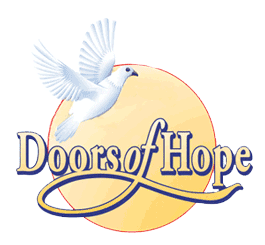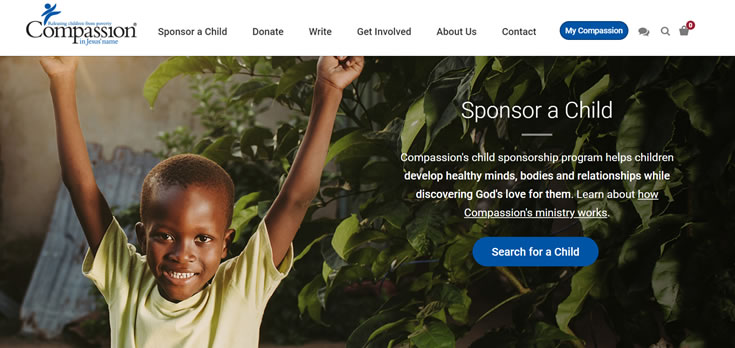|
Because He Cares |
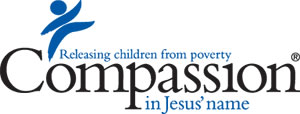 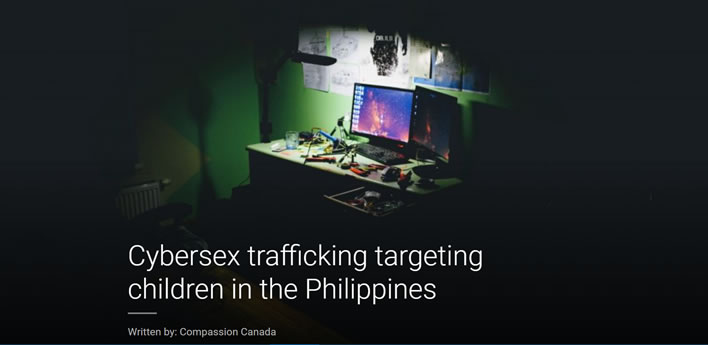 Written by Edwin Estioko with Laura Phillips - Reporting and Photos by Edwin Estioko *Warning: This account contains disturbing details of sexual violence. “How can an abused child praise God the Father, when she was raped by her own father? How can the children thank God when they are being hurt and punched in the face every day? How can they sing songs when their own mothers are taking pictures of them naked and then selling their pictures?” There’s a new kind of darkness that’s preying on Filipino children in poverty: online sexual exploitation. Online sexual exploitation, otherwise known as cybersex trafficking, refers to the act of forcing children to remove their clothes and perform unspeakable acts in front of a cell phone or computer camera. These videos are streamed to online predators from anywhere in the world in real time—in most cases, by their own parents or relatives. |
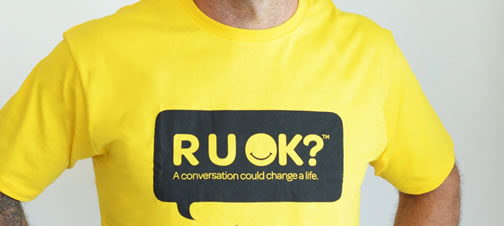 The Jim Young Foundation exists to make the world a safer, gentler place for those who struggle with mental health issues. Jim Young was a talented British Columbian wildlife artist who lived in Prince George, BC. Sadly, in 1992, Jim took his own life after a long, private battle with depression, anxiety and other mental health issues. The Jim Young Foundation was launched in July 2015 in parallel with the release of the book, Fireflies: Finding Light in a Dark World by Jim’s sister, Heather Gordon-Young. Fireflies tells Jim’s story. The foundation is governed by a Board of Directors with expertise in counselling psychology; suicide intervention; child and youth mental health; family support programs; international business; and non-profit management. The Jim Young Foundation is working towards better outcomes for children, youth and adults with mental health issues. The foundation’s current priorities include projects whose primary focus is: (1) to create a world that is safer for people with mental health concerns to be understood, to ask for help, to be supported and to access treatment or (2) to provide more supports in rural and regional communities. To register your interest in R U OK? Day 2017 in Canada R U OK? Day is just getting started in Canada and we’d love to hear from folks who want to get involved. If your community, business, or organization is interested in getting involved in R U OK? 2017 in Canada we’d love to hear from you. Please use this form to get in touch. Thanks for joining in! REGISTER - PLEASE ALSO VIEW JIM'S AMAZING ART |
||||||||||||||||||||||||||||
How Technology Affects Sleep Quality Of Our Kids: Protect Your Children From These Sleep Disruptors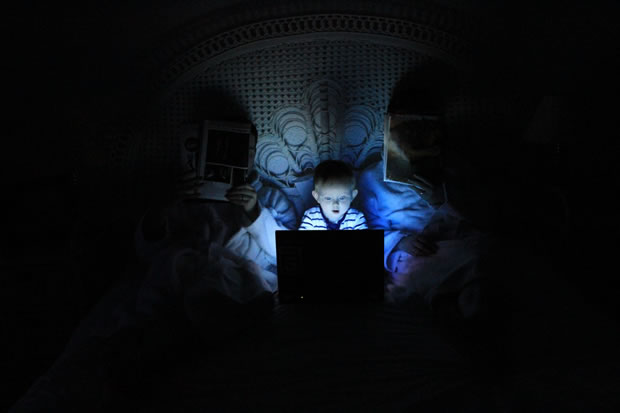 Your Child And Technology – What We Know And Don’t Know  SEE MUCH MORE ON ON WEBSITE |
||||||||||||||||||||||||||||
| Keeping Kids Safe BC Government - Keep Kids Safe
|
||||||||||||||||||||||||||||
| Surpassing Our Survival S.O.S Society Sexual Violence Prevention and Counselling Services KIDS CORNER |
||||||||||||||||||||||||||||
|
Why Are Teenage Mothers Likely to Suffer with Postpartum Depression?
Postpartum depression, or postnatal depression, affects women after
childbirth and the symptoms are similar to those listed above. Knowing how
to cope with postpartum depression can
be tricky, but women who have mental health issues during and after
pregnancy can have children who are themselves at a greater risk of
developing mental health problems. Teenage
pregnancy is likely to be a crisis situation for
your child as they suddenly realize their life is about to change so
dramatically. Family conflicts, less socializing, lack of supportive
networks, low self-esteem and a change in hormones, all contribute towards
symptoms of depression in adolescent mothers. A teenager mother experiencing
postpartum depression can be a serious issue as she might have trouble
bonding with her new baby or even have thoughts of harming herself or the
baby. Make sure you seek immediate help if you suspect your daughter of
feeling this way.
How Is Childhood Depression Treated?
For help with depression you should see your family physician and discuss
with them a referral to a qualified mental health professional. Like most
mental health conditions, childhood depression is treated with a mixture of
prescribed medication and therapy, with CBT (Cognitive Behavioral Therapy)
proving to be highly successful.
What Else Can I Do to Help My Child?
Helping and supporting your child by giving them a healthy diet, encouraging
exercise and outdoor play, praising their positive behaviour and
acknowledging their strengths, will help them get back on track. Make sure
they understand that depression is not a weakness, and that people of all
ages, from all walks of life will suffer with the condition. Let them know
talking about it is always a better option that telling no one at all.
Although a real and serious condition, childhood
depression is treatable.
With family support and the correct treatment, your child will be given the
tools they need to overcome this disorder.
|
||||||||||||||||||||||||||||
|
With sincere Thanks to
|
||||||||||||||||||||||||||||
|
HIV In Children -
What To Do and How To Help
It is an unfortunate fact that an HIV positive mother can pass her
condition on to her unborn child. This is usually because they were
unaware of their HIV status when they got pregnant. Discovering that you
have unwittingly given your child HIV can be a crushing blow. People
feel a tremendous sense of guilt, and worry that their child will not be
accepted by the world at large. Nonetheless, parents in such a situation
should not lose heart. Most people have the best
interests of children at heart - no matter that they have HIV. There
is also plenty that can be done these days to limit the effects of HIV
– especially
when caught young. (Antiretroviral
therapy of HIV infection in infants and children) Your child can go on to live a healthy and happy
life, their infection notwithstanding. However, challenges will
inevitably arise. Here is a short guide to dealing with some of them.
When To Tell Your Child
Many people are unsure when it is a good idea to tell their child that
they are HIV positive. It is a tricky balance between unduly scaring a
child who is too young to really understand, and shocking an older child
who may then feel a sense of betrayal that you had not told them sooner
of their condition. Many parents also keep their child’s HIV positive
status from them in a bid to save them from being exposed to community
prejudice. However, it must be remembered that children are not dumb
innocents. It will not take them long to figure out that they are taking
medication which other kids are not. Those kids who do take medication
(asthmatics, diabetics and so on) will generally know why they take
their own medication and may even ask your child what his or her
medicine is for. It is perhaps best, therefore, to let the information
out slowly, over time, in varying degrees depending upon how much you
feel that they can take in. This ‘softly, slowly’ approach can be
difficult to handle, but if done effectively it will both answer
questions that younger children may have about their medication, and
prevent the news from coming as a horrible shock to older children. It
is notable that children aware of their condition from pre-pubescence
and gradually being naturalized to its details and implications usually cope
with the diagnosis quite well. Studies
have shown that they have few to no psychological problems
associated with the knowledge, and accept their condition with
remarkable equanimity and strength of mind.
What To Tell Your Child
Children, when they are aware of their condition, will need information
– they should not be kept in the dark about the nature and implications
of their condition. Furthermore, you will probably have to reiterate
this information several times, or even modify it should treatment
options and so forth change. Children are surprisingly resilient, so you
would be amazed at how much negative information they can take in with a
courage and strength that would fail an adult. However, it is best to be
as positive as possible nonetheless. Focus on the improvements that have
occurred in treatment – HIV positive people, with the right treatment
consistently given, can now expect to live just
as long as those who are HIV negative, and science is making positive
advances towards even better treatment all the time. While the
condition should not be downplayed – to do so would be in many ways to
insult the intelligence of the child, and children respect adults who
deal honestly with them – emphasizing these positives may take the sting
out of what you have to tell them. Also make sure that you listen and
respond (to the best of your abilities) to any queries they may have.
They will inevitably have questions. If there are any which you cannot
answer, show the child that you are making an effort by writing them
down and promising to consult a doctor upon the matter when next you
have an appointment.
What To Tell Others
Many people are very worried about how their HIV positive child will be
able to interact with their peers and the HIV-negative world. They do
not want their child to experience stigma or
rejection purely because of their condition, and thus hide their child’s
HIV status. This is a perfectly understandable stance to take, and you
do not have to tell anyone about your child’s HIV if you do not want
to – not even their school. However, telling others can have surprising
benefits. For one thing, much of the stigma that used to surround the
condition has been eradicated, so telling teachers and other people may
in fact open up more love and support for your child, rather than the
opposite. For another, it is likely that your child will need to have
clinic visits and so on, meaning that questions may arise regarding
their absences from school, play-dates and so on. Disclosing your
child’s HIV status can help to alleviate any such queries. You might
also find that freely informing teachers and other personages whom your
child respects of the HIV can have psychological benefits for your
child. Your child should never be made to feel ashamed of their
condition – and keeping it hidden may reinforce the idea that they have
something shameful and are therefore themselves inherently shameful –
which is obviously extremely bad for them psychologically. However, some
parents and caregivers have found that it is better all round to keep
the knowledge of your child’s HIV to a minimum number of people. It all
depends upon what you think is best. After all, you know your child and
your child’s lifestyle better than most, so you will know which course
of action is most appropriate.
Interacting With Others
There is no need to be concerned about your child transmitting HIV to
another child. HIV can absolutely not be transmitted through hugs,
sharing drinking fountains, kisses, using the same toilet as an infected
person, eating in the same canteen, holding hands, or contact with any
bodily fluids (including sweat, phlegm, tears, and urine) other than
blood. It is so rare as to be almost impossible for someone to contract
HIV simply from living and playing in close proximity with someone who
has HIV. Having said this, however, it may be wise to let young children
know that they should be careful if they cut themselves not to let their
blood get near anyone else who has a cut. As they get older, be sure to
stress the importance of safe sex, and possibly provide condoms – just
in case!
Have Hope For The Future
HIV has such a terrifying reputation in this day and age that
discovering your child has HIV can induce total panic and despair.
However, there is really no need to worry. As long as your child is
taking their medication and doing their best to stay healthy, there is
no reason why they should not enjoy a long,
quality-filled life just like their peers. The most important thing
is to be on hand to offer love and support – the medication will keep
your child’s body alive, and thriving, but the unconditional love you
offer will help them to come to terms with their condition and live as
full a life as they possibly can.
|
||||||||||||||||||||||||||||
|
||||||||||||||||||||||||||||
